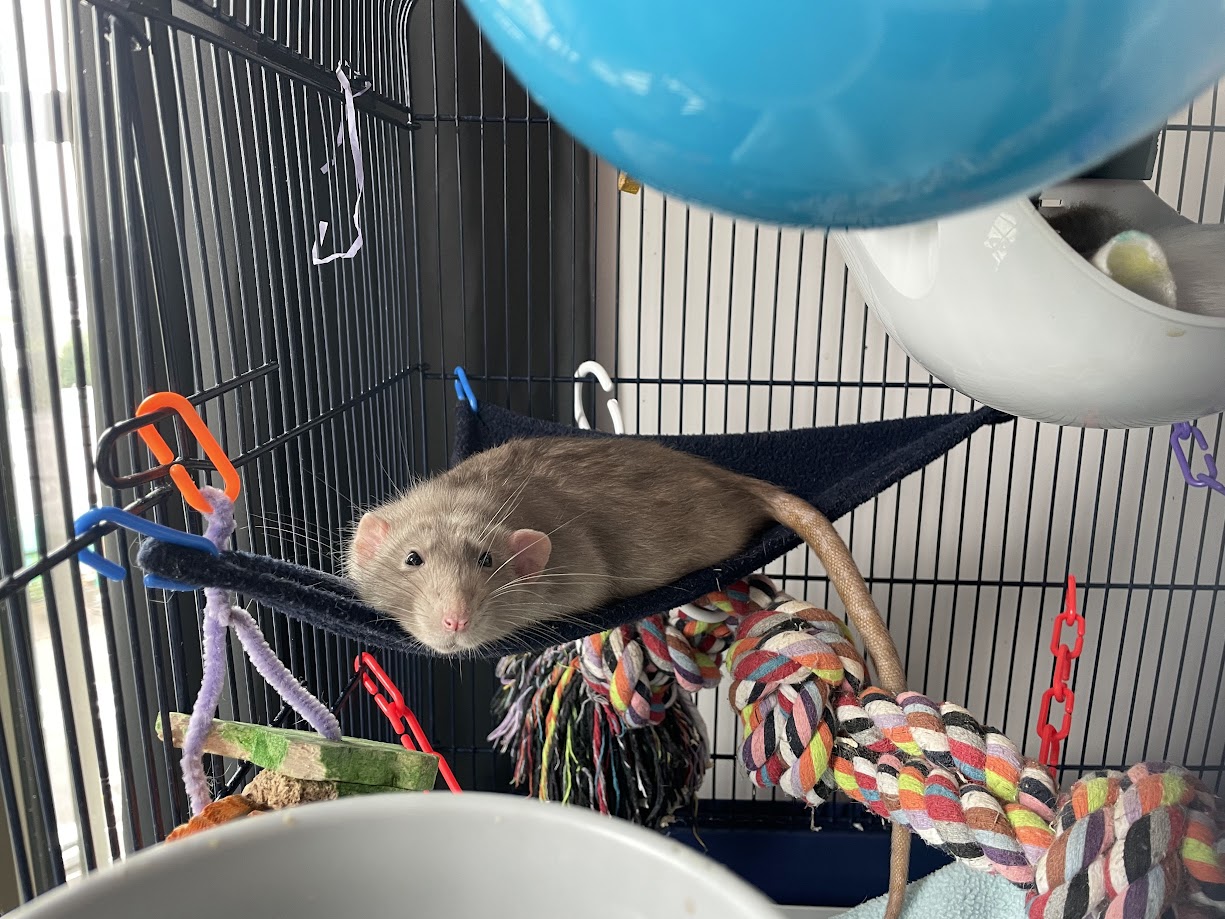
Owning rats can be an exceptionally fulfilling, enjoyable experience. However, they are not for everyone, especially when considering the upkeep and requirements necessary to be a good rat owner. Here are some of the realities of what it’s like to own rats.
While rats themselves may not be inherently expensive for adoption costs, the cost of upkeep and care can easily turn a $15 rat into a $1500 rat overnight.
*Please note: these are estimates from pet owners and personal experience. Prices vary wildly from region to region. A survey of 65 rat owners from across the world determined these figures. For more information about the breakdown of these costs, please see my blog post on the writeup: Rat Pricing Inquiry Survey - Results
Caring for rats can be time consuming if not factored into your daily routine. Below are average estimates of time spent providing care in respect to the frequency of the activity. These events can vary in anything between a couple of minutes, to several days.
Rats, unfortunately, live on average between 2 to 2.5 years, 3 at maximum. This means that our time on earth with them is rather limited. Over the years I have learned to handle the loss of my beloved pet rats, but at times it can still be difficult losing them. One thing that helps me remind to be kind to myself is something that a friend of mine told me many years ago. I do not believe in reincarnation, but I love thinking about a rat's life like this:
Imagine all living beings as vessels for souls. We each have our own soul, and that means that rats have their own souls. Each time a vessel passes, the soul must find a new vessel to take its place. Rats live such a short time as they are simply vacations for souls. They spend a few years relaxing, recuperating from their difficult past lives, eating good food, spending time snuggled up in the cage, loved and adored by their owners (you). When the soul feels properly recharged, the rat passes and the soul goes on to continue a new life thanks to you.
If you are struggling with the loss of a pet, it can be important to take time to cope with it in a healthy way. Here are some resources that can be helpful:
1. Talking with a trusted family member or friend
2. Journaling to process feelings and emotions
3. Letting yourself grieve. Everyone grieves differently, and as long as it is not harming you or others, then it is completely fine
4. Take time to care for yourself. Give yourself grace and understand that grief is not a linear process
If you are severely struggling and finding yourself in an unsafe headspace or simply not handling the death well, please seek mental health counselling, therapy, or medical support. You are not alone in this. Remind yourself that death is a natural part of life, and your rat passing is not directly your fault. Your rat passed knowing they were loved by you. And remember, you may not spend our whole life with them, but they spend their whole lives with you.